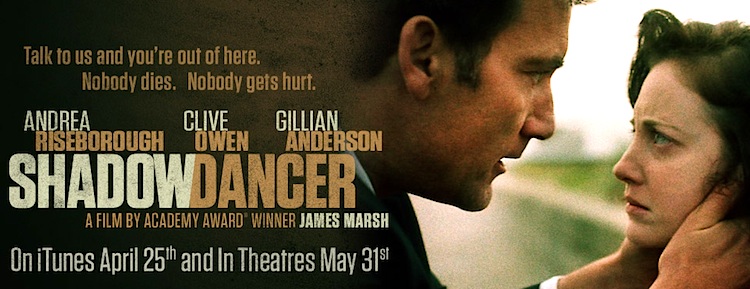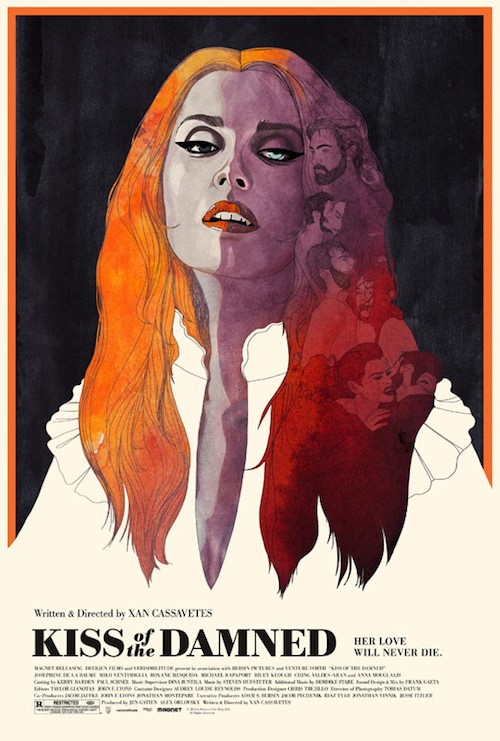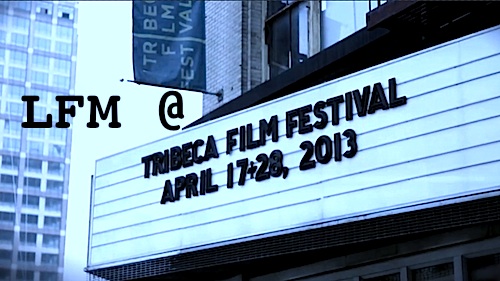By Patricia Ducey. Shadow Dancer takes place in 1993 Belfast during the fitful, bloody denouement of the conflict referred to delicately as The Troubles. In the opening minutes, we meet Colette McVeigh as a child. She sends her little brother out for cigarettes, when her father told her to go, and the boy is killed in a British/IRA crossfire.
The film then jumps to 1993 as the adult Colette, now played by Andrea Riseborough, steps into the London Tube, apparently going to work. After an uneventful ride, she alights and dashes towards street level, but not before leaving her purse on an empty staircase. We know, after Boston, in a shock of recognition, that this is a bomb. She escapes through a maze of maintenance tunnels, only to be grabbed outside by two men and hustled into a car.
But Colette is no lamb; she is a hardened IRA “volunteer” now and knows what will follow. As the agents drive her through London, she quietly disappears into herself, preparing for the expected interrogation. After all, her mission in London represents a new IRA tactic: by wreaking violence on the mainland, they hope to destroy the British people’s resolve to remain in Ireland, at all. This entire sequence is almost silent, which amps the suspense even further; no conversation or music distract from Colette’s cool, expressionless face as she hurries to complete her mission and then prepare for arrest.
The two agents deliver her to Mac (Clive Owen), the MI5 interrogator, and he tries to break her. He offers her the family dossier. In it she finds the forensic report from the killing of her little brother, the act which has radicalized her and her two surviving brothers. But the report identifies the bullet as coming from a known IRA weapon. In a rush, she pushes away the file — and the truth? — against a rising moral revulsion that she has never totally extinguished.
Finally, Mac presents her an ultimatum: return to Belfast and inform on her famous IRA family, or go to prison for decades and watch her little son delivered up to the foster care system. Of course, she relents, and the real suspense begins.


